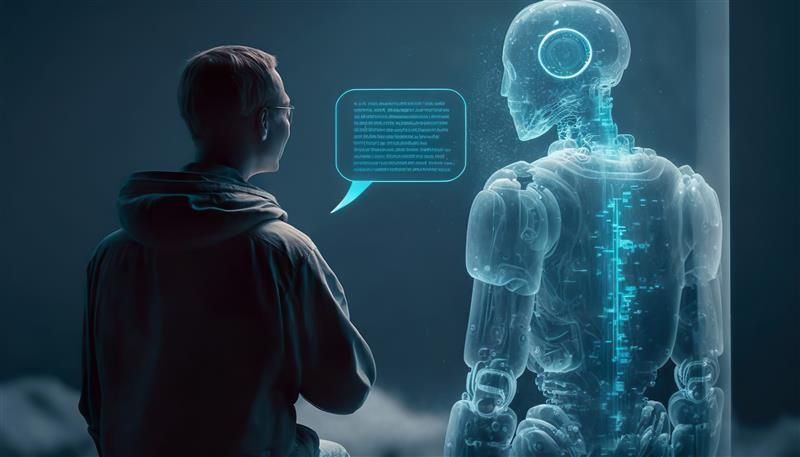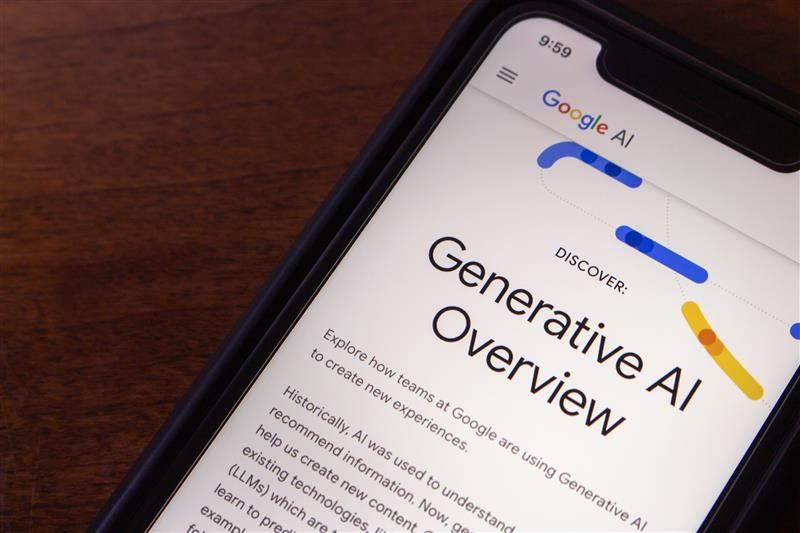In today’s fast-paced tech world, businesses are flocking to cloud platforms for machine learning. With two giants—Microsoft Azure and Amazon Web Services (AWS)—leading the pack, the question remains: Which is the best cloud for your machine learning project? According to a recent report, cloud infrastructure spending surpassed $230 billion in 2023, with AWS and Azure capturing 58% of the market share combined. Both platforms are powerful, but each offers unique strengths, making choosing the right one for your needs crucial. This blog will dive deep into Azure vs. AWS Machine Learning, comparing their offerings, certifications, and real-world applications to help you make an informed decision.
Overview of Azure and AWS in Machine Learning
Before diving into specifics, let's understand how these platforms stand in the machine learning (ML) landscape. AWS entered the cloud market early, gaining a reputation for its robust, scalable services. On the other hand, Microsoft Azure, with its deep integration with Microsoft tools, has become a strong contender, especially for enterprises already relying on Windows-based environments. AWS has SageMaker, an all-in-one service that completely encapsulates the whole life cycle of machine learning-from preparation of data to deploying a model. Microsoft, on its part, has Azure Machine Learning or simply Azure ML that is deeply integrated into the Microsoft developer ecosystem, with the profound power to automate and relatively strong DevOps tools. The two platforms offer extensive tools, but which one do you need for your project?
Machine Learning Tools Comparison: Azure vs. AWS
AWS SageMaker: A Versatile ML Powerhouse
AWS SageMaker is a complete machine learning service that simplifies building, training, and deploying ML models. SageMaker supports popular frameworks like TensorFlow, PyTorch, and MXNet. Its pre-built algorithms and easy scaling options make it a go-to choice for developers and data scientists who need flexibility.
Key Features:
- Integrated Jupyter notebooks for easy model building
- Hyperparameter tuning with built-in algorithms
- Seamless integration with AWS Lambda for automating workflows
- Real-time model deployment
Azure Machine Learning: Perfect for Enterprises
Even so, Azure ML does not seem to be seen as a simple and highly powerful automation tool. Azure ML seems to be an obvious choice for organizations highly committed to the Microsoft ecosystem, with Office 365, Power BI, and SQL Server integrating smoothly. Azure ML is also fantastic at MLOps workloads, which makes it great for those businesses who want their ML workloads to deploy seamlessly and end-to-end.
Key Features:
- Automated machine learning (AutoML) for faster model development
- Support for popular frameworks like PyTorch and TensorFlow
- Drag-and-drop interface in Azure Studio for non-programmers
- Enterprise-grade MLOps with Azure DevOps integration
Pricing: AWS or Azure—Which is More Cost-Effective?
Pricing can significantly be decided when comparing AWS vs. Azure Machine Learning. AWS and Azure follow a pay-as-you-go model, but their pricing structures can differ depending on usage and scale.
- AWS offers a free tier for SageMaker, which provides 250 hours of to. medium notebook usage for the first two months.
- Azure also has a free tier with Azure ML, allowing users to access free computing for 30 hours per month on their basic computing instances.
It’s essential to calculate costs based on specific needs, like the number of models you plan to deploy, the complexity of those models, and storage requirements. Azure tends to be more cost-effective for Windows-based enterprises, while AWS is often better for Linux-heavy environments.
AWS vs. Azure Certification: Which Adds More Value?
Another factor to consider is certification, especially if you are looking at training staff or validating skills as an individual or company. AWS and Azure have established certifications specializing in machine learning and cloud services.
AWS Certification:
AWS has a Machine Learning Specialty Certification designed specifically for designing, training, and deploying ML models on AWS. It is a highly in-demand certification, mainly among developers seeking to be certified in specialization with ML applications in the AWS ecosystem.
Azure Certification:
The certifications that exist in Azure are the Azure AI Engineer Associate and the Azure Data Scientist Associate. These certifications can be useful for professionals working in the Microsoft Azure environment and getting particular expertise in developing and deploying AI solutions on an Azure platform. Whether it’s AWS or Azure certification, both are excellent options. However, if your focus is purely on ML with minimal cloud interaction, AWS may offer a more specialized route. At the same time, Azure is better suited for data engineers and scientists working in enterprise settings.
Real-World Use Cases: When to Choose AWS vs. Azure Machine Learning
AWS for Startups and Scale-Ups
Many startups prefer AWS for its scalability and flexibility. A prominent example is Airbnb, which uses AWS for its machine learning models, enabling real-time pricing adjustments and personalized recommendations for millions of users. AWS’s extensive toolset and global infrastructure make it ideal for companies expecting rapid growth and needing to scale fast.
Azure for Enterprises and Government Sectors
Large enterprises like Volkswagen and governments are often drawn to Azure for its strong compliance features and seamless integration with existing Microsoft products. Azure Machine Learning powers predictive maintenance models, optimizing manufacturing processes and reducing downtime across global operations. Additionally, Azure's compliance with industry regulations such as GDPR and HIPAA makes it a go-to choice for companies in highly regulated industries.
Best Machine Learning Cloud Platform: Azure vs AWS Verdict
Your decision will depend on your specific needs regarding the best machine learning cloud platform, AWS, and Azure Excel. Choose AWS if your focus is on flexibility, scalability, and a comprehensive toolset that supports a variety of ML frameworks. Choose Azure if you are deeply embedded in the Microsoft ecosystem or need enterprise-grade MLOps and automation features. According to Gartner, AWS holds 34% of the cloud market, while Azure controls around 22%. While AWS dominates, Azure’s growth rate has been faster in recent years, particularly in the enterprise sector.
The Essential Ingredients for Machine Learning You Need to Know
Machine learning has evolved dramatically over the past decade, transitioning from a specialized and costly endeavor into a widely accessible technology. But what core components are necessary to get a machine learning system? At its heart, machine learning relies on three primary ingredients:
- Massive amounts of data
- Powerful computational tools to process the data
- Expertise to guide the process
Just decades ago, only governments or elite universities could afford the computational power needed for machine learning. That all changed with cloud computing. Today, based merely on an internet connection, any business can tap into powerful, cutting-edge machine learning tools via cloud platforms like Azure vs. AWS Machine Learning, and Google Cloud Platform (GCP). These support processing large amounts of data through point-and-click interfaces and charge only for the tools needed, letting users focus on tasks at hand. More exciting still, cloud providers have made turnkey machine learning solutions accessible through simple API calls, making it easier to reach ML technology than ever. This blog will compare Amazon Web Services (AWS), Microsoft Azure, and Google Cloud Platform (GCP) around three key areas: machine learning building block services, machine learning platforms, and machine learning infrastructure. So, let's break it down.
Machine Learning Building Block Services
Machine learning building blocks are services designed for users with little machine learning expertise. They are typically offered as APIs or SDKs from cloud providers, making it easy to get started with powerful ML technology. These building blocks require minimal setup, allowing companies to implement AI capabilities without specialized knowledge. Let’s explore what each cloud provider offers in key service areas:
Speech-to-Text and Text-to-speech
- AWS: Amazon Transcribe converts speech to text, while Amazon Polly generates speech from text.
- Azure: Offers Speech to Text and Text to Speech under the same names.
- GCP: Similar offerings are called Speech to Text and Text to Speech.
These services are crucial for applications like transcription, voice assistants, and accessibility tools.
Chatbots
Chatbots have become a staple in customer service. Cloud providers offer robust tools to make them smarter and more intuitive.
- AWS: Amazon Lex powers chatbots with natural language understanding.
- Azure: Provides Language Understanding to enhance chatbot capabilities.
- GCP: Features Dialogflow for creating conversational agents.
Translation Services
Automated translation has come a long way, evolving into a core feature of cloud AI services.
- AWS: Amazon Translate offers fast, accurate language translation.
- Azure: Simply named Translator, this service performs similar functions.
- GCP: Provides translation, which is ideal for multilingual applications.
Text Analytics
Text analytics services use natural language processing (NLP) to extract meaning from everyday language, identifying themes, topics, or sentiments.
- AWS: Amazon Comprehend extracts sentiment and key phrases.
- Azure: Offers Text Analytics for similar tasks.
- GCP: Provides Natural Language for understanding text data.
Document Analysis
Document analysis uses machine learning to scan and extract valuable information from text-heavy documents like forms and contracts.
- AWS: Amazon Textract automates the extraction of text and data.
- Azure: Combines Text Analytics and Form recognition for document processing.
- GCP: Offers Document AI for data extraction from documents.
Image and Video Analysis
These services can detect objects, recognize faces, and even flag inappropriate content in images or videos.
- AWS: Amazon Rekognition covers both image and video analysis.
- Azure: Provides Computer Vision and Azure Face services.
- GCP: Offers Vision for images and Video for video analysis.
Anomaly Detection
Anomaly detection helps identify irregular patterns in data streams and is useful in security, fraud detection, and monitoring.
- AWS: Includes Amazon Lookout and Fraud Detector for anomaly detection.
- Azure: Features Anomaly Detector and Metrics Advisor.
- GCP: Provides Cloud Inference for real-time anomaly detection.
Personalization
Personalization engines are widely used in eCommerce to recommend products or services based on user behavior.
- AWS: Amazon Personalize leverages the same recommendation technology used on Amazon.com.
- Azure: Offers Personalizer for creating tailored experiences.
- GCP: Provides Recommendations AI for personalized content suggestions.
The effectiveness of all these services depends on the quality of your data. As they say in machine learning: garbage in, garbage out.
Machine Learning Platforms: The Workbench for Data Scientists
Machine learning platforms offer data scientists and developers the tools to build, train, and deploy models. These platforms are like the IDE (Integrated Development Environment) of machine learning, enabling users to work more efficiently with pre-configured tools and environments.
Jupyter Notebooks and Framework Support
The gold standard of interactive computing for machine learning is the Jupyter Notebook. Not surprisingly, each of the three cloud providers, Azure vs. AWS Machine Learning, and GCP, has come out with their integration with this valuable tool. Each platform supports popular machine learning frameworks such as TensorFlow, PyTorch, MXNet, and SciKit Learn. Compatibility with most tools used in the data science community is therefore guaranteed.
Security, Integration, and Information Management
All three provide inherent security features, including encryption and access controls, for safeguarding your data and models. All the platforms also support collaboration tools, in case you are working on a team-based project, and data management capabilities, in case you are storing large datasets with retrieval support. These services can manage all parts of the machine learning lifecycle, from data preparation to model deployment, including deployment monitoring.
Choosing the Best Machine Learning Cloud Platform: AWS vs Azure vs GCP
When selecting the best platform for machine learning, it's essential to consider your specific needs:
- AWS is known for its scalability and extensive set of machine learning tools. It’s ideal for startups and companies that need flexibility and rapid growth capabilities.
- Azure excels in enterprise environments where integration with Microsoft products (like Office 365 and Azure DevOps) is a priority.
- GCP shines with data analytics and AI services, particularly for organizations already leveraging Google’s extensive data tools.
Each provider has its strengths but offers robust solutions for machine learning projects.
Azure AI vs. AWS AI: Steps for Picking the Best Cloud for Your Project
As organizations increasingly adopt AI-powered solutions, two cloud giants—Microsoft Azure and Amazon Web Services (AWS)—have emerged as the top contenders. Both platforms offer a range of AI services, but which one is better suited for your project? This blog will provide a detailed comparison of Azure vs. AWS Machine Learning, covering key areas such as pricing, service features, performance, and integration capabilities so you can make an informed choice.

1. Pricing and Cost Considerations
While both Azure and AWS use a pay-as-you-go model and charge you based on the specific AI service you are using, flexibility and options for customization are better with the AWS AI services compared to what is offered by Azure. Azure AI is fabulous within the Microsoft ecosystem, making it a good fit for enterprises with significant investments in Microsoft tools like Office 365 or Dynamics 365. Neither platform is particularly expensive, however. Pricing varies by location and scale of your cloud infrastructure. You should consider long-term costs when choosing a platform that best fits your needs. Organizations running Windows-based environments might benefit from savings by integrating with Azure. Pricing is often friendlier from AWS, especially for Linux-based workloads.
2. Service Features of Foundation Models
Both platforms provide robust frameworks for building foundation models (FMs). AWS Bedrock and Azure OpenAI are designed to support developing and customizing powerful AI models. However, AWS's Bedrock has a wider array of pre-trained models, offering greater flexibility for specialized AI projects. AWS may be better for developers or data scientists working on projects requiring highly customizable foundation models. Its deep catalog of pre-trained models and frameworks, such as TensorFlow, PyTorch, and MXNet, allows various applications. Azure OpenAI is also strong but is more focused on streamlining development within Microsoft-centric environments.
3. Performance and Integration Capabilities
AWS generally provides more flexibility than Azure in terms of performance and integration. AWS AI services are known for seamless integration with serverless environments, enabling smoother, more scalable AI model deployment. Its Lambda service, for instance, allows developers to build and deploy AI applications without worrying about server management. This flexibility makes AWS AI ideal for companies that need to scale their operations quickly or experiment with different deployment environments. On the other hand, Azure excels in hybrid cloud environments, making it the go-to platform for organizations with both on-premises and cloud-based infrastructure. Azure AI is designed to integrate seamlessly with existing enterprise setups, allowing companies to leverage their current infrastructure while adopting AI solutions. Azure's hybrid cloud capabilities can offer significant advantages for businesses with strict regulatory requirements or legacy systems.
4. Ecosystem and AI Use Cases
Both AWS and Azure have vast ecosystems and cover a wide range of AI use cases. The platforms can address a broad spectrum of business needs, from computer vision and language AI to chatbots and virtual agents. However, this extensive range of services can be overwhelming, especially for companies starting with AI. AWS AI has earned a reputation for providing particularly well-suited tools for startups and fast-growing companies. Its wide range of pre-trained models and flexible infrastructure is perfect for companies needing to build and deploy AI solutions quickly. On the other hand, Azure AI tends to be a better fit for large enterprises and government sectors where compliance and security are paramount. Its deep integration with other Microsoft products makes it a natural choice for organizations who are already part of the Microsoft ecosystem.
5. Data Security and User Experience Comparison
Azure vs. AWS Machine Learning offer robust security measures, and large enterprises and government bodies worldwide trust both platforms. Azure often excels in data security, particularly for organizations with stringent compliance requirements. Azure’s built-in security controls and compliance certifications like ISO 27001, GDPR, and HIPAA make it a preferred choice for industries such as healthcare and finance. Regarding user experience, both platforms provide comprehensive documentation and active community support. Your team’s familiarity with the platform may play a significant role in determining which cloud to choose. AWS has a broader range of learning materials and resources, especially for developers who may already be familiar with Amazon Web Services. Azure, however, might offer a smoother learning curve for teams already immersed in Microsoft products.
Need Help with Your Business
Contact Us NowWhich Platform Should You Choose?
Choosing between Azure AI vs. AWS AI comes down to your organization’s specific needs and existing infrastructure.
Choose AWS AI if:
You need flexibility, a broad range of pre-trained models, and seamless serverless integration for scalable AI applications. AWS is often the better choice for startups, tech-focused companies, and businesses prioritizing customization and scalability.
Choose Azure AI if:
Your organization already invests in Microsoft products or requires robust hybrid cloud support. Azure is ideal for large enterprises, government organizations, and companies operating in industries with strict compliance and security requirements.
Why Tekrowe Chooses the Best Cloud Platform for Your AI Needs
Tekrowe, a leading technology consulting firm, specializes in helping businesses navigate the complex world of cloud computing and AI. With a deep understanding of AWS and Azure AI platforms, Tekrowe is well-equipped to guide organizations in selecting the best cloud solution for their unique AI requirements. Whether you're a startup looking to leverage AWS’s flexibility or an enterprise seeking Azure's robust security and hybrid cloud capabilities, Tekrowe provides customized solutions tailored to your goals. At Tekrowe, the approach goes beyond just choosing a cloud provider. The firm focuses on end-to-end implementation, ensuring that your AI projects are optimized for performance, scalability, and cost-efficiency. By analyzing your current infrastructure, future needs, and compliance requirements, Tekrowe ensures you select the platform that delivers the most value.
Conclusion
There is no one-size-fits-all answer when choosing Azure vs. AWS Machine Learning. Amazon Web Services vs. Microsoft Azure each has its strengths, making it essential to align the platform with your project requirements. Whether you're a startup looking for scalability or an enterprise needing seamless integration with existing systems, both cloud providers offer compelling solutions. However, Azure AI will serve you better if you're deeply integrated into the Microsoft ecosystem or require a robust hybrid cloud solution. With stronger data security and seamless integration with on-premises systems, Azure is often the preferred option for enterprises and government sectors. Your decision should align with your project's scale, infrastructure, and compliance requirements, ensuring the platform supports your long-term growth. Still unsure? Ask yourself: Do you need flexible, scalable services for an innovative project or a more integrated, enterprise-friendly platform with powerful automation features? In the end, the best machine learning cloud platform is the one that best supports your goals.
FAQs
Which platform offers better AI services for startups: AWS or Azure?
AWS is typically better for startups due to its flexibility, scalability, and wide range of pre-trained models. It allows quick deployment and experimentation, making it ideal for fast-growing companies.
Is Azure AI better for enterprises than AWS?
Azure AI is often a better choice for enterprises, particularly those already using Microsoft products. Its strong integration with tools like Office 365 and Azure Active Directory and its robust hybrid cloud capabilities make it ideal for larger organizations.
Can AWS and Azure be used together for AI projects?
Yes, some organizations use both AWS and Azure for different purposes. For instance, they might rely on Azure for hybrid cloud solutions and AWS for more specialized AI tasks requiring flexibility and scalability.
Which platform offers better support for compliance and security: AWS or Azure?
While both offer strong security, Azure has a slight edge in data security, especially for industries with strict compliance needs, such as healthcare and finance, due to its extensive regulatory certifications like HIPAA and GDPR.




